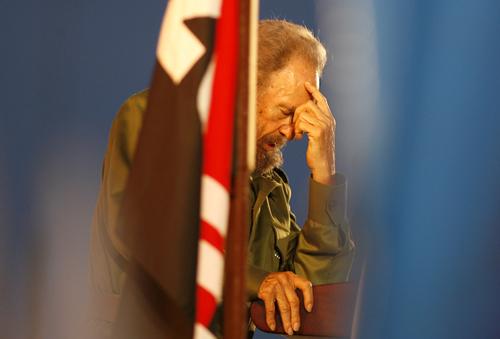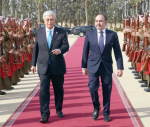You are here
‘Havana Syndrome’ linked to Russian intelligence unit — report
By AFP - Apr 02,2024 - Last updated at Apr 02,2024

The US embassy in Havana in 2017 (AFP photo)
WASHINGTON — Russian intelligence has been linked to mysterious so-called Havana Syndrome symptoms experienced by US diplomats, a media investigation said on Monday, but the State Department stood by its assessment that no foreign actor was responsible.
Havana Syndrome was first publicly reported in 2016 when US diplomats in Cuba’s capital reported falling ill and hearing piercing sounds at night, sparking speculation of an attack by a foreign entity using an unspecified sonar weapon.
Other symptoms including bloody noses, headaches and vision problems were later reported by embassy staff in China, Europe and the US capital Washington.
The diplomats may have been targeted by Russian sonic weaponry, according to the joint report by The Insider, Der Spiegel and CBS’s “60 Minutes” news programme.
The year-long investigation “uncovered evidence suggesting that unexplained anomalous health incidents, also known as Havana Syndrome, may have their origin in the use of directed energy weapons wielded by members of [the Russian GRU] Unit 29155”, the report said.
Russia’s Unit 29155 is responsible for foreign operations and has been blamed for several international incidents, including the attempted poisoning of defector Sergei Skripal in Britain in 2018.
The United States in 2017 withdrew non-essential employees from its recently reopened embassy in Havana and expelled Cuban diplomats over the illnesses, speculating that microwave or other electronic warfare was responsible.
But US intelligence later concluded that the symptoms were more likely the result of preexisting conditions, conventional illnesses and environmental factors.
State Department spokesman Matthew Miller, asked about the new report, said there had been no change in that assessment.
“It has been the broad conclusion of the intelligence community since March 2023 that it is unlikely a foreign adversary is responsible for these anomalous health incidents,” Miller told reporters.
Moscow dismissed the new allegations as “groundless”.
“This topic has been talked up in the press for many years already. And from the very beginning, most often it’s linked to the Russian side,” Kremlin spokesman Dmitry Peskov told a news conference.
“But nobody has ever published any convincing evidence, so all this is nothing more than a groundless and unfounded accusation,” he said.
The joint investigation suggests the first cases of Havana Syndrome may have occurred in Germany two years earlier than the cases reported in Havana in 2016 that gave the syndrome its name.
“There were likely attacks two years earlier in Frankfurt, Germany, when a US government employee stationed at the consulate there was knocked unconscious by something akin to a strong energy beam,” the report said.
The New Yorker reported in July 2021 that about two dozen US intelligence officers, diplomats and other government officials in Austria had reported problems similar to the Havana Syndrome since President Joe Biden took office earlier that year.
The United States deployed medical and scientific experts to study the alleged attacks, and those affected have been extensively examined to try to understand their afflictions.
A study last month by the National Institutes of Health said that it found no tangible evidence of brain injuries in people with Havana Syndrome, even if they reported real symptoms such as migraines, chronic dizziness and depression.
In a sign of easing concerns and also a sign of policy priorities, the Biden administration last year reopened the US immigration office in Havana that had been shuttered during the scare.
Related Articles
HAVANA — Cuba on Friday hailed the US decision to partially reopen its consulate in Havana, which has been closed since 2017 following alleg
HAVANA — Cuban revolutionary leader Fidel Castro turned 90 on Saturday in an island transformed from the one he led for half a century.Both
President Barack Obama told Congress on Tuesday he intends to remove Cuba from a US list of state sponsors of terrorism, clearing the main obstacle to restoring diplomatic relations and reopening embassies shut for more than half a century.

















